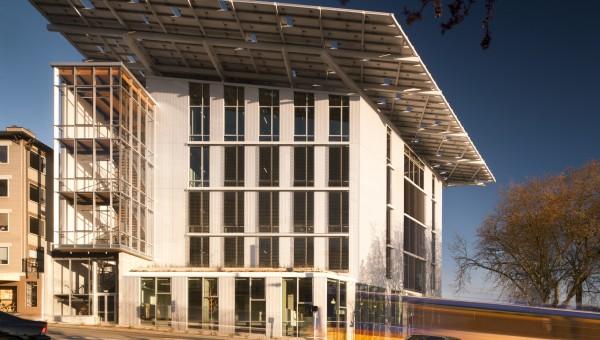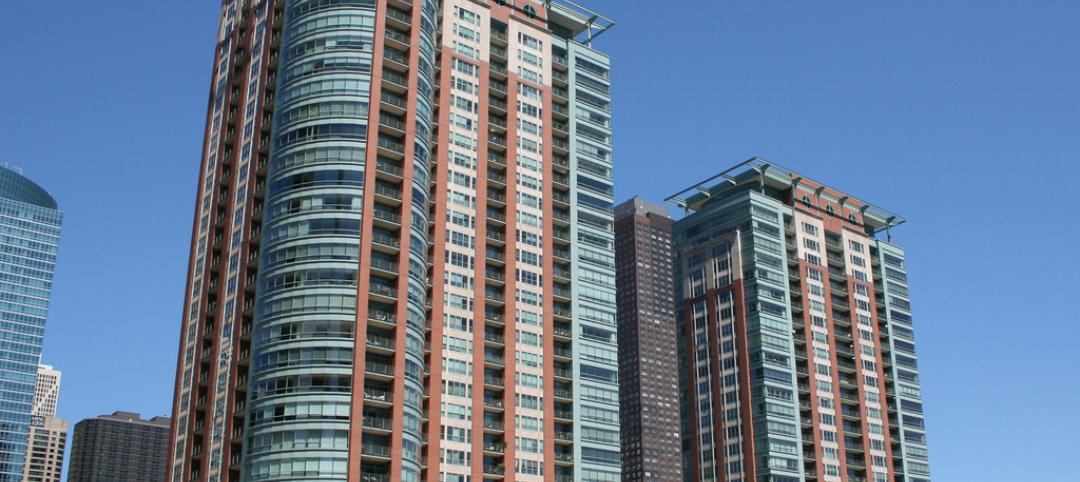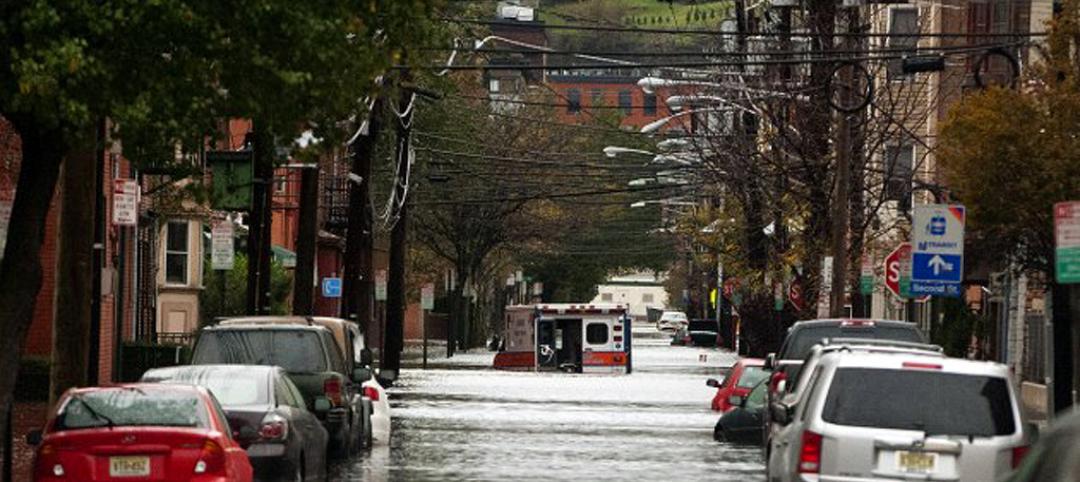The Bullitt Center in Seattle, which some say is the world's "most efficient" office building is not only influencing how other structures are built, it is contributing to revisions of codes and public policy.
The building’s design was made possible by Seattle’s Deep Green Pilot Program that allows builders to deviate from standard codes to build more sustainably. For example, the building was allowed to add two to three feet to the height of each floor to allow more daylighting. Neighbors objected to the additional 10 feet in overall building height, but the program permitted the non-conforming design.
Some of the building’s code deviations have been incorporated into the city code. For instance, the city council and the mayor had to approve changes to the building code to allow permits for “sustainability features.” This move allows the building’s solar canopy to extend all the way to the property line.
Bullitt Foundation, the environmental group that owns the building, recently signed a first-in-the-nation agreement with the local utility that will allow the foundation to sell Seattle City Light the energy it is saving or “negawatts.” The arrangement, known as MEETS (metered energy efficiency transaction structure) could be a pioneer in drawing investment funds to energy-efficiency projects.
Bullitt is also seeking final approvals from the county and state to turn the building into its own water district. That designation would allow tenants to drink rainwater collected on site and treated in the building’s basement.
(http://grist.org/business-technology/how-one-building-is-changing-the-world/)
Related Stories
Codes and Standards | Aug 21, 2015
Illinois governor vetoes bill that would restrict condo owners’ rights
Bill would have made it harder to sue for building flaws
Codes and Standards | Aug 21, 2015
Post-Katrina roofing codes creating more resilient buildings on Gulf Coast
Ten years after storm, notable progress on stronger roofs, IBHS says
Smart Buildings | Aug 21, 2015
Federal Alliance for Safe Homes offers plan to strengthen codes for disaster resilience
Some states losing ground on resilience, group says
Codes and Standards | Aug 21, 2015
After disease outbreak, ASHRAE legionella standard adopted in New York
City Council acts after 12 die of legionellosis
Codes and Standards | Aug 13, 2015
Research indicates major earthquake looming for Pacific Northwest
Most structures built before seismic codes instituted; extreme damage predicted
Codes and Standards | Aug 13, 2015
New York City may allow affordable housing developers to ‘double dip’ in subsidies
New York City may allow affordable housing developers to ‘double dip’ in subsidies
Codes and Standards | Aug 13, 2015
L.A. considers controversial traffic calming measures
Goal is to encourage alternative transportation
Codes and Standards | Aug 13, 2015
Proposed facility smart grid standard open for public review
Goal is common way to describe, manage, communicate about electrical energy consumptions, forecasts
Codes and Standards | Aug 6, 2015
AAMA updates methods for testing of exterior walls
The standard specifies test methods, specifications, and field checks to evaluate structural adequacy of exterior wall systems composed of curtain walls, storefronts, and sloped glazing.
Codes and Standards | Aug 6, 2015
Difference in male-female thermal comfort is due to clothing, ASHRAE says
Women wear lighter clothing in the summer, so they tend to be cooler in air-conditioned rooms, according to the group.















